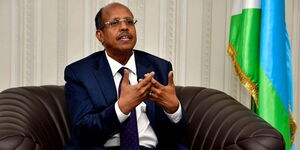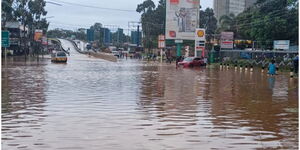On Thursday, January 17, the International Monetary Fund (IMF), approved a Ksh150 billion loan for Kenya which came with a specific set of conditions.
These conditions are among several others which the major lenders IMF and the World Bank have given the Kenyan Government over time with the view of springing the country into economic recovery.
Some of these conditions have, however, had a direct effect on the livelihoods of Kenyans.
First off, the IMF gave the condition that the latest loan given had to be used to implement the nation’s economic reforms.
In addition, the lender also urged the Ruto government to use part of this money to implement climate policies and the preparedness of the country towards pandemics.
Preceding the above-mentioned loan, the Executive Directors of the Washington based lender on Wednesday pushed the government to urgently implement tax reforms (Medium-Term Revenue Strategy (MTRS) which covers the financial year 2024/2025 to 2026/2027) which had been announced by the Treasury.
"On tax collections, Directors expressed concerns over recent shortfalls and called for urgent implementation of corrective measures," the IMF statement read in part.
The tax reforms which were proposed in September by the Treasury Cabinet Secretary Njuguna Ndung’u called for the introduction of various taxes including, the wealth tax, minimum tax, increased Value Added Tax (VAT) on select products, and VAT on education and insurance services.
Other new taxes include a carbon tax, surcharge tax, and motor vehicle circulation tax.
Furthermore, the IMF called upon Kenya to proactively manage fiscal risks including financial bills. It also encouraged strengthening the debt management capacity.
In regards to inflation, the lender warned Kenya about an expected increase in inflation in the first half of 2024 due to the volatility in global oil prices and the exchange rate.
In June last year, Ndung'u read a Budget which had fingerprints of the Bretton Woods institutions, IMF and the World Bank.
The State was in motion to adopt various policies from the two institutions that Kenya agreed to implement, including increasing Value Added Tax (VAT) on fuel to 16 percent.
“In particular, allow me to single out the multilateral institutions, specifically the World Bank, the International Monetary Fund (IMF), the European Union, the African Development Bank, and the many bilateral donors, institutions and governments that have walked the journey of socio-economic transformation with Kenya.” the Cabinet Secretary stated while reading the budget.
Various items were additionally removed from the zero-rating list meaning these items would start being charged the 16 percent tax.
The Government would then cut subsidy spending to zero in the first quarter to September as a result of implementing the conditions by the IMF to end the support plans.
Ksh 24.87 billion had been budgeted to be spent on the subsidies, mainly fertiliser, in the 2023/2024 financial year, however, the spending did not materialise between July and September.
The government had already splashed Ksh 43.91 billion on subsidies (maize flour, fuel, electricity, and fertiliser) in the first quarter of 2022/2023 financial year.
The withdrawal of the subsidies had a direct effect on the consumers with the high fuel prices pushing up inflation.
In May last year, the World Bank asked Kenya to drop the requirement for mining firms in Kenya so as to cede about 35 percent stake to locals to attract more investments.
The World Bank asked policy makers in Kenya to develop a mining regulatory framework for regional equity in a move aimed at attracting investments and maximising revenues from natural resources.
The latest loan by the IMF worth Ksh 150 billion will boost Kenya’s foreign exchange reserves as the country faces the fast-approaching Eurobond repayment deadline.












